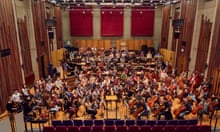The future of the younger generation in the UK has been decided against their wishes. A nostalgic older generation has shaken my identity and I no longer fully understand what it means to be British. The number of students wanting to pursue opportunities in another EU country is likely to decline; it remains unclear whether or not future generations will even have the opportunities that were made available to me, which moulded me into an outward-looking, inquisitive and ambitious British citizen.
During my undergraduate studies, I was one of the only students who belonged to a BAME background on my languages course. I would often be asked why I chose to study a languages degree and I’d always proudly explain that the UK was a part of the EU and that we needed to learn to work closely with our neighbours and maintain friendly relations – by studying about their history, their cultures, their languages.
Two years ago, I completed my year abroad through the Erasmus programme, an EU initiative established in 1987.
I worked for the British Council in Viernheim, a small town in Germany, the same town that had its local cinema attacked on the day of the referendum.
When I heard of the shooting, I messaged my former colleagues and friends immediately – colleagues and friends I had made through my year abroad – to make sure that they were safe and well.
A few months after graduating from my UK university, I embarked on a new European journey – I was accepted on to a competitive Erasmus Mundus Masters programme, another EU initiative giving students the chance to study in at least two European countries. Through this programme, I moved to Denmark for my master’s, studied full time, found work part time and attended Danish class every week.
I was born into the European Union, but the strong connection I have with it is a result of the academic and professional choices I have made throughout my life, predominantly due to the array of opportunities offered by the EU to UK students like me.
Until the day of the referendum, I was certain that my future lay in the EU, but now I share the same feelings of isolation as Kafka’s Gregor, who was neglected and abandoned by the people he thought understood him most.
It is now more important than ever for young people to be resilient and to continue promoting the attitudes of co-operation and collaboration of the union we were born into.
Brexit was not our choice, but retaining the progressive attitude being in the EU instilled in us is our responsibility.








